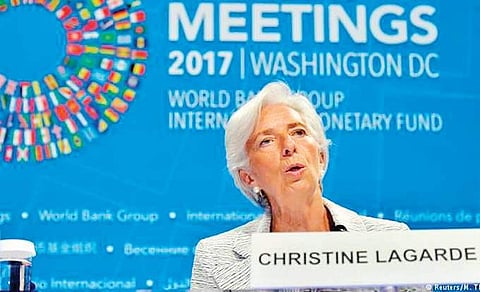

NEW DELHI: The annual cost of bribery, which is just one subset of corruption, is estimated to be between $1.5 trillion and $2 trillion — roughly two per cent of global gross domestic product. These costs represent only the tip of the iceberg and the long-term impacts go much deeper, says Christine Lagarde, managing director, International Monetary Fund.
Speaking at a Brookings Institution event in Washington on Monday, she pointed out that there is a growing consensus among members that corruption is a macro-critical issue in many countries. Hence, this has to be taken head on. “We also are committed to looking at transnational private actors who influence public officials,” she said.
Since private actors may help generate corruption through direct means such as bribery, they also can facilitate corruption through indirect means such as money laundering and tax evasion.
“The recent example of the 'Panama Papers' highlights the importance of these facilitators, and underscores the pernicious way corruption can quietly spread across borders,” said Lagarde.
The IMF chief also stressed that systemic corruption undermines the ability of states to deliver inclusive growth and lift people out of poverty. It is a corrosive force that eviscerates the vitality of business and stunts a country’s economic potential, she said.
Lagarde also warned that corruption will impact the country’s ability to attract foreign investment.
“Corruption becomes institutionalised, distrust in government grows and poisons the ability of a nation to attract foreign direct investment,” she said.
Emphasising the importance on regulatory reform and strengthening legal institutions, she said regulatory reform does not necessarily mean deregulation, but instead streamlining to reduce the number of gate-keepers in charge of permits, fees, and contracts.
“On the legal front, it is often the institutions charged with enforcement - the police, the public prosecutors, and the judiciary - where the rot of corruption sets in,” she warned. She also launched two new anti-corruption research initiatives led by Brookings, the IFC, and their partners.